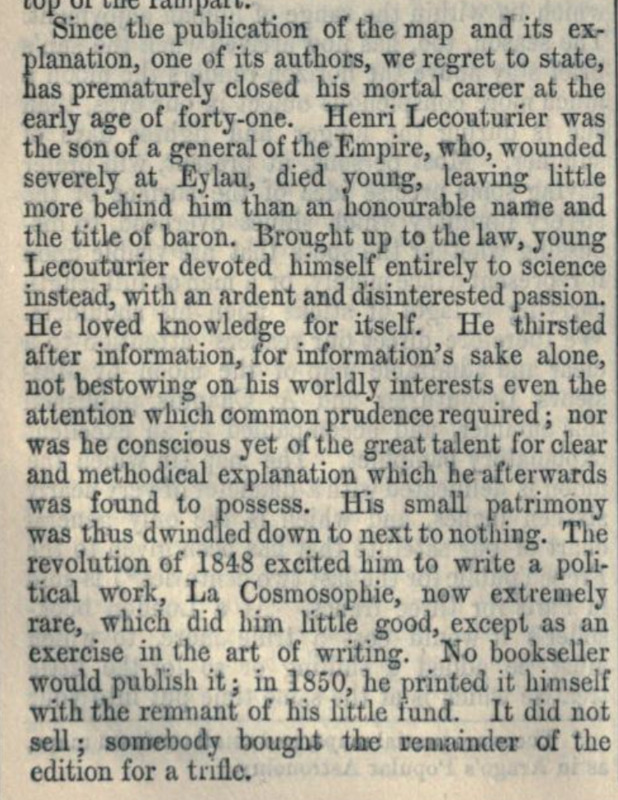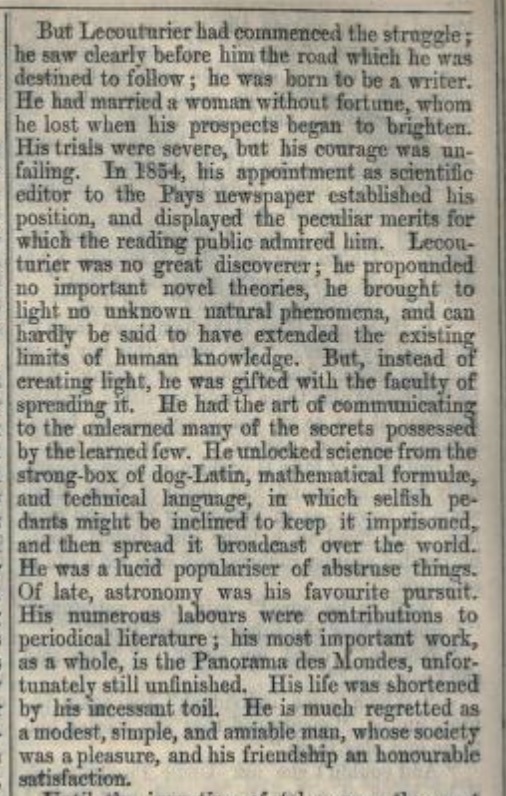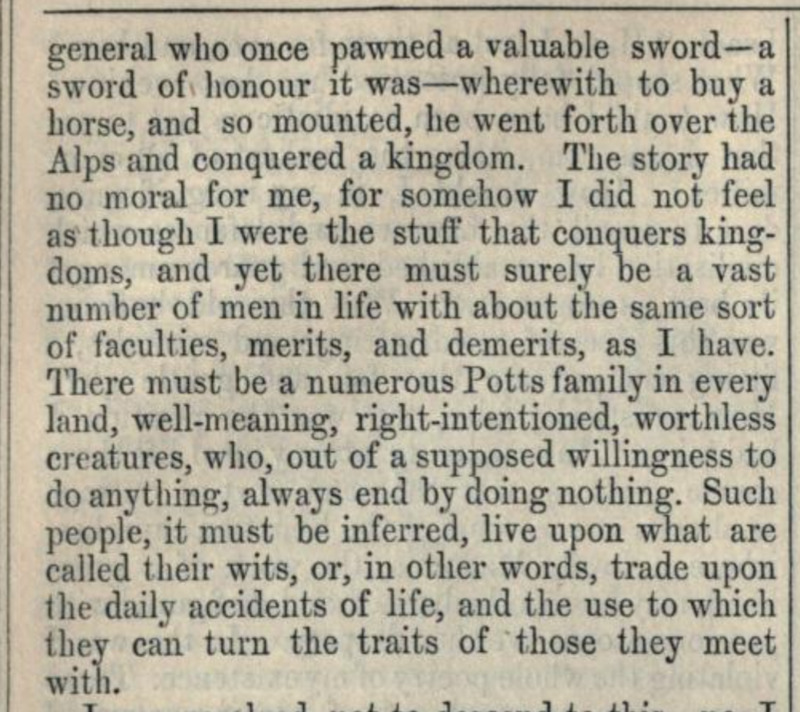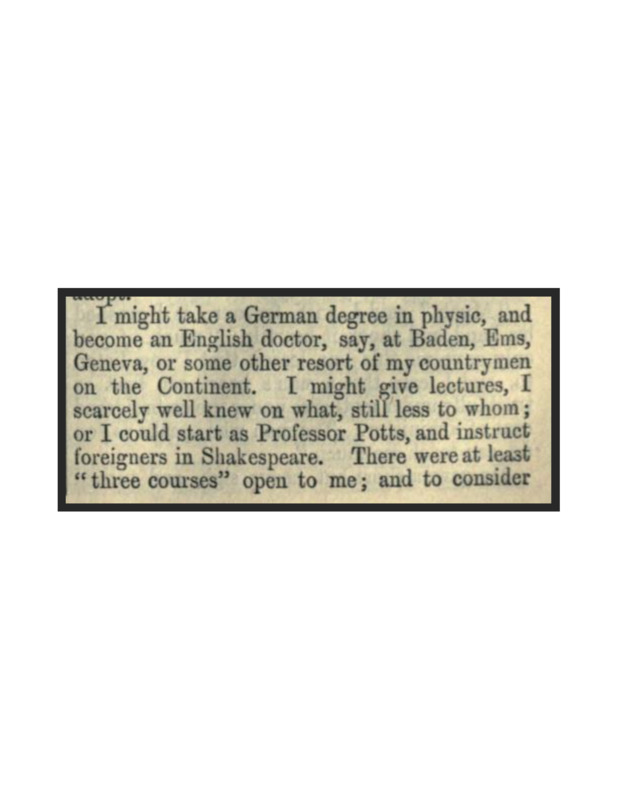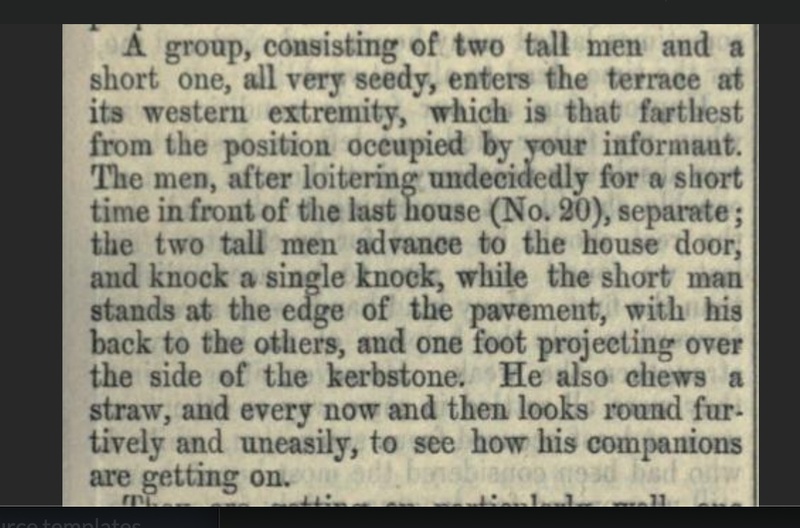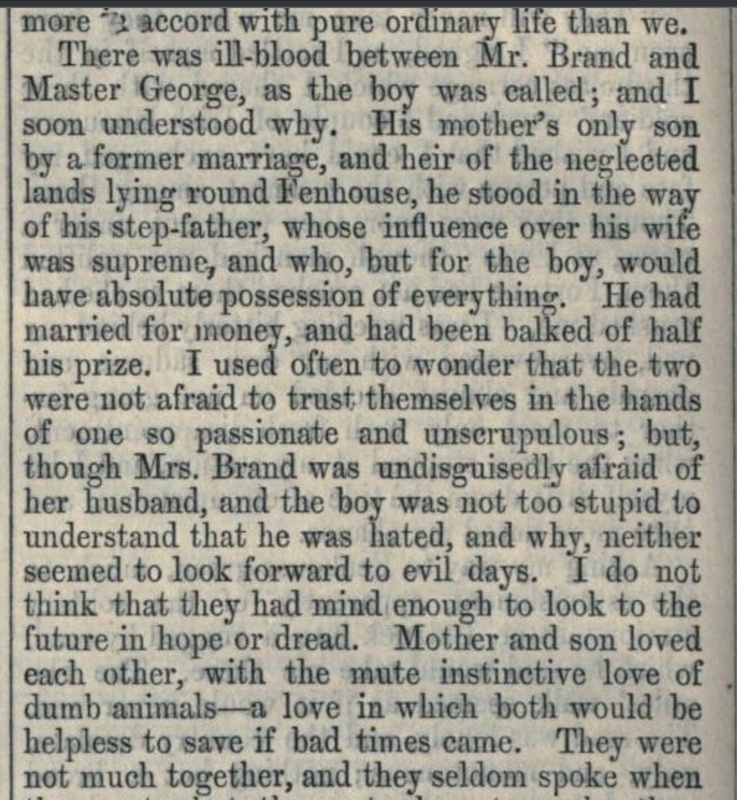Part 4
Great Expectations by Charles Dickens tells the story of Pip, a working-class child who is raised to the status of a gentleman by an initially unknown patron. Written and published during the rise of self-help books and the ideal of the self-made man, Pip’s story at first glance seems to support these values (Hasegawa 305). However, upon further inspection, Great Expectations takes on a more complex and subtle view of what it means to be a gentleman. At a time when literacy rates were rising in England but before education became compulsory for all children, it presents the impact literacy has on a person’s social status and financial stability while also separating social status from morality. Dicken’s novel suggests, through its middle- and upper-class characters, that while education and wealth can improve an individual’s status and quality of life it does not necessarily have an impact on a person’s morality. Indeed, as Masayo Hasegawa argues, Dickens was against the prospect of social mobility and rather set out to improve the morality of the middle and upper classes as a means of improving the lives of the working class whom they depended on (Hasegawa 517). Pip’s desire to become a gentleman is indicative of the self-made ideals of the time, while the focus on education as a means of attaining that status demonstrates the increasing importance placed on education during a time of scientific and technological progress. This ideal of success and what it means to be a gentleman is evident in works published alongside Great Expectations and while some agree with Dickens’ view of the social hierarchy, others advocate for and celebrate the greater accessibility of knowledge. In particular, the pieces that appear in All the Year Round alongside the serialization of chapters five and six of Great Expectations demonstrate the complex and nuanced views of social mobility, literacy, and class in England during the early 1860s.
At the time Great Expectations was being serialised, there were many advances in technology being made. The increased travel speed and accessibility provided by the train systems, the ease of communication created by telegrams and even the scientific discoveries being made that resulted in a greater understanding of the world contributed to this focus on education. Published alongside chapters five and six of Great Expectations was a review of the current understanding and knowledge concerning the moon as well as the theories currently being presented on the subject. In particular, the author of the piece titled “The Moon” begins with a description of M. M. Lecouturier and A. Chapuis’s map of the moon which was available for five shillings in London bookshops (Unknown, “The Moon”). This map is presented as an accessible bit of information and entertainment to the public which would reveal the landscape of the moon as it could be seen through a telescope. Additionally, the life and education of M. M. Lecouturier is reported, citing his “ardent and disinterested” passion for science (Unknown, “The Moon”). Lecouturier’s dedication to learning and his love of knowledge for the sake of knowledge are celebrated in this piece, even as Lecouturier’s lack of great contributions to the progression of science and technology are admitted. Instead, he is applauded for his ability to “spread light” rather than create it as he “had the art of communicating to the unlearned many of the secrets possessed by the learned few” (Unknown, “The Moon”). The presence of “The Moon” alongside chapters five and six of Great Expectations in which Pip shows Joe the progress he has made in his ability to write points towards the increasing importance placed on education amid the rise of self-help books and “self-made man” literature as previously mentioned. Although Dickens was against the social mobility set out by these success stories, the increase in accessibility of knowledge and education that would later become compulsory for children is evident in this piece which celebrates the scientific pursuits of the time.
Following “The Moon” is the serialized publication of chapters XXVIII - XXIX of A Day’s Ride; A Life’s Romance which contains a scene in which Potts has given up on the girl he was attempting to woo and has instead turned to remedying his own life and considering the options available to him. As the son of an apothecary, Potts has “at least 3” options available to him that would afford him a stable income and allow him to remain in a similar social class (Lever, 256). In comparison to Pip, who’s only option until he meets Miss Havisham is to become Joe’s apprentice and work as a blacksmith, Potts’ situation demonstrates the greater freedoms and careers available to higher social classes. However, as we see in these chapters, after he has lost the woman he sought after, Potts begins to rebuke himself for being one of those people who “trade upon the daily accidents of life, and the use to which they can turn the traits of those they meet with” (Lever, 256). The character of Potts, not only in his admission to his own penchant for “doing nothing” as well as the hinting towards his ill behaviour which caused the woman he mentions to leave, supports Dickens belief that the moral improvement of the middle and upper classes would result in better working conditions for the lower classes whom they depend on (Hasegawa 317). Potts’ realization of his immorality and personal failings leads him to desire a change in his own situation and character. However, the social class he was born into and the education he received early on in his life gives him an economic advantage over characters such as Pip. Pip’s education at this point in the novel is rudimentary as displayed in his attempted letter to Joe and furthermore, Joe is almost entirely unable to read the letter. According to Pip, “Joe’s education, like Steam, was yet in its infancy” and yet Pip sets out to teach Joe everything he himself learns in school (Dickens 82). Although Pip’s desire to teach Joe stems from the idea that education is the key to becoming a gentleman and his embarrassment of Joe’s illiteracy and social status, both he, and Potts understand on some level the advantage gained by their literacy. For Potts, this literacy gives him a moral advantage and leads him to improve, whereas Pip is afforded an economic advantage, although his morals decline upon gaining the status of a gentleman.
The moral failings of the middle class that Pip comes to exhibit are displayed in the piece titled “Boxing Day”. Labeled as a letter written by Mr. Skinner Stone to the editor of All the Year Round, this piece details and criticizes the actions of “waits”, or carollers, during the Christmas season. At the beginning of the piece, Mr. Stone refers to the waits as “very seedy” and at first thinks them to be criminals of some sort (Stone 259). After realizing their purpose in being in his neighbourhood, the writer reveals them as “the cruel waits” and goes on to describe them as “diffident and embarrassed personages” that were composed of “your regular dustmen, and your united scavengers, and your lamplighters embodied into a company (limited), and lastly, of your incorporated waits” (Stone 259). His characterization of the waits as having other jobs in addition to their current occupation reveals that which Dickens disagreed with in middle class society, namely the dependency and exploitation of the working class (Hasegawa 315). The author’s opinion of these waits is one of general annoyance and irritation and displays the low opinion many upper-class English citizens had of the lower classes, an opinion which has just begun to sprout within Pip in chapter six. Pip’s desire to acquire knowledge is yet in its beginning stages at this point but is driven by his association of education and literacy with “truth, reason, legitimate authority, and other post-Enlightenment ideals” (Nunez 280). This ideal is seen in Pip’s condescension towards Joe’s illiteracy as he asks him how to spell Gargery “with a modest patronage” (Dickens 81). Furthermore, Joe’s description of his childhood in this chapter is the beginning of the lessons he teaches Pip throughout the novel, lessons which Pip is slow to appreciate, and which are absent in Mr. Stone’s letter. Mr. Stone, in addition, displays the same proclivity as Pip for assuming a moral and social high ground to the waits he condemns, the very behaviour Dickens sought to change.
The short story “The Family at Fenhouse” which appears directly following “Boxing Day” offers another example of the lacking morals of the middle class. The main character of this short story is Jane Erfurt, a young girl born into an impoverished family who must contend with her inherited illnesses. Left with very little options for employment to support herself, she takes a job as a companion to the lady of Fenhouse, Mrs. Brand. Upon arriving, she is faced with Mr. Brand, an abusive and controlling man who seems to have no love for the woman he married or his stepson. Mr. Brand exemplifies the idea that literacy and education are not indicative of one’s character as he has become bitter and angry at the world for the slights he believes he has been dealt (Nunez 281). Having married Mrs. Brand for her money, Mr. Brand was disappointed due to his wife’s health and the fact her inheritance would go to her son upon her death and by the end of the story, Mr. Brand has murdered his stepson and framed Jane for it (Unknown, “The Family at Fenhouse”). An extreme example of the lack of correlation between education and morality, this story also demonstrates the dependency on and exploitation of the working class. The character of Mr. Brand presents an example of upper-class individuals with more education than the people they mistreat and abuse, thereby confirming that being a gentleman is about more than just wealth and education while also supporting Hasegawa’s argument that “Dickens thought that the people society considered respectable and genteel exploited the common laborers whom they depended on” (315). Jane’s lack of education leads to her exploitation by Mr. Brand even as he depends on her presence to achieve his own goals.
Great Expectations is a novel which contends with the exploitation of the working class and immorality of the middle class however it also reinforces the social hierarchy of 19th century England. When looking at the other works published alongside part four of Great Expectations it becomes clear that the view of social mobility and the role of education and literacy was not the same throughout this era. Some works such as the chapters discussed from A Day’s Ride; A Life’s Romance seem to support the argument that the middle class was dependent on the working class and therefore on the maintenance of the social hierarchy as well. Others reinforce the immorality of the middle class, as is seen in “The Family at Fenhouse” or support the detestation and exploitation of the lower class such as in “Boxing Day”. Even so, there are others such as “The Moon” which take a more optimistic stance on the increased accessibility of education as the advancements of science and technology were viewed with wonder and those who made the effort to bring this knowledge to the masses were applauded. Overall, there was no clear consensus on the value of social mobility, but all of these works make a clear case for the economic, moral, and social advantage imposed by access to education in Victorian England. This is supported by the declining morals of Pip as he gains the status of a gentleman, a decline which is contrasted by the steadfast wisdom and morality of Joe, a simple blacksmith whose only knowledge of letters is limited to those which make up his own name, “J” and “O”. In conclusion, part four of Great Expectations and the other texts published alongside it argue that education and literacy have no influence on one’s morality but the promotion of moral values, forgiveness, and kindness is of the utmost importance, regardless of social class or status.
Works Cited
Dickens, Charles. Great Expectations. Edited by Graham Law and Adrian J. Pinnington, Broadview Literary Texts, 1998, pp. 76–88.
Hasegawa, Masayo. “Joe as the Wise Fool in Great Expectations: Dickens’s Criticism of the Mid-Victorian Literature of Success and Upward Social Mobility.” Dickens Studies Annual, vol. 52, no. 2, Sept. 2021, pp. 299–319, https://doi.org/10.5325/dickstudannu.52.2.0299.
Lever, Charles. "A Day's Ride; A Life's Romance: Chapter XXVIII-XXIX." All The Year Round, vol. 4, no. 87. 22 Dec 1860, p. 254-258. Internet Archive. https://archive.org/details/allyearround04charrich/page/254/mode/2up?view=theater
Nunez, Tatiana. “Alternative Literacies and Language InBleak HouseandGreat Expectations.” Dickens Studies Annual, vol. 50, no. 2, Sept. 2019, pp. 277–94, https://doi.org/10.5325/dickstudannu.50.2.0277.
Stone, Skinner. "Boxing Day." All The Year Round, vol 4. no. 87. 22 Dec 1860, p. 258-260. Internet Archive. https://archive.org/details/allyearround04charrich/page/258/mode/2up?view=theater
Unknown. "The Family at Fenhouse" All The Year Round, vol 4. no. 87. 22 Dec 1860, p. 260-264. Internet Archive. https://archive.org/details/allyearround04charrich/page/262/mode/2up?view=theater
Unknown. "The Moon." All The Year Round, vol 4. no. 87. 22 Dec 1860, p. 245-251. Internet Archive. https://archive.org/details/allyearround04charrich/page/244/mode/2up?view=theater
